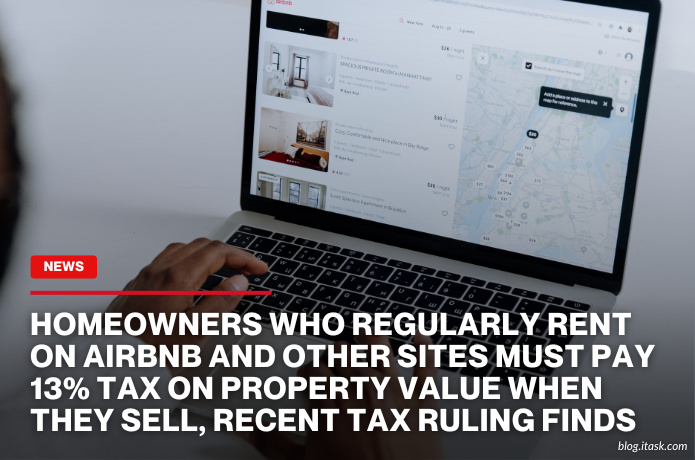Homeowners who regularly rent on Airbnb and other sites must pay 13% tax on property value when they sell, recent tax ruling finds
Homeowners who regularly rent on Airbnb and other sites must pay 13% tax on property value when they sell, recent tax ruling finds

A recent Tax Court ruling in Canada has introduced a new requirement for homeowners who frequently rent out their properties on short-term rental platforms like Airbnb. These homeowners must now pay a 13% Harmonized Sales Tax (HST) on the property’s value when they sell. This rule applies to those whose homes are regularly rented for short periods, categorizing them as "commercial" rather than residential properties.
The ruling means that properties used consistently for Airbnb or other short-term rentals could face the same tax regulations as hotels. Under these new guidelines, the sale of properties used predominantly for short-term rentals is now subject to HST, unlike regular home sales which are generally exempt from this tax. This move may impact Canadians who rely on platforms like Airbnb to supplement their income.
Real estate experts are advising homeowners engaged in regular short-term rentals to be aware of this new tax implication. The tax could result in unexpected costs, particularly for those planning to sell properties they have used for rental income. According to tax professionals, this could mean a significant financial impact for sellers, depending on the value of the property.
Many short-term rental hosts were previously unaware that such a tax could apply. Some feel the rule unfairly penalizes those trying to make extra income, while others believe it may help balance the housing market by discouraging frequent conversions of homes into short-term rentals. This ruling also signals that tax authorities are closely scrutinizing the growing popularity of short-term rental markets.
As short-term rental platforms like Airbnb continue to grow in popularity across Canada, this ruling is a reminder for hosts to consider tax obligations seriously. Homeowners should consult tax professionals to fully understand how frequently renting their homes could affect them when it’s time to sell.
